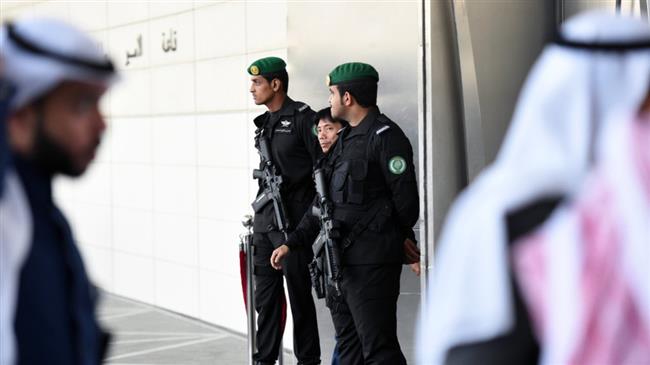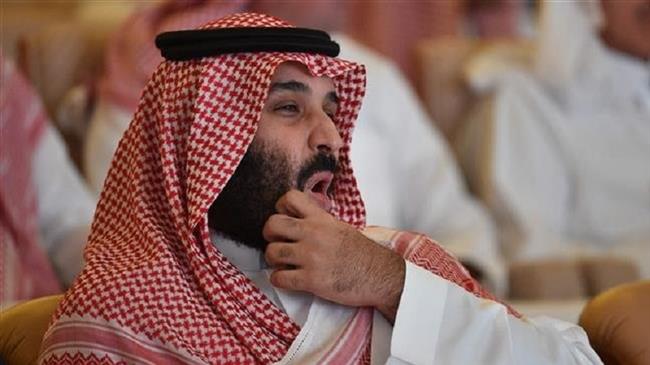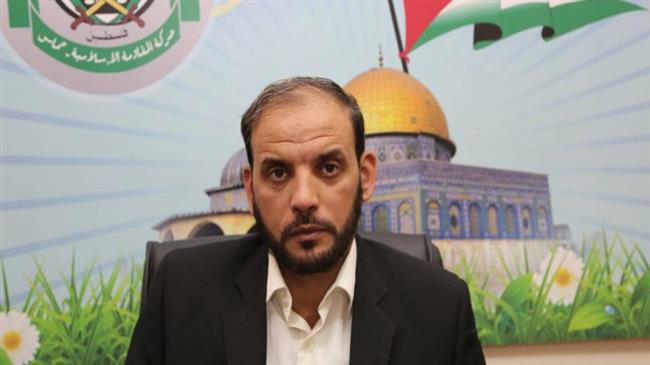UK admits assisting Saudi royal family guard enforce 'public order'
Britain has admitted that it provides training to the Saudi Arabian National Guard, assigned to protect the Saudi royal family, in matters related to enforcing "public order", raising concerns regarding London's role in Riyadh's rights abuses.
“The British Military Mission provides a variety of training to the Saudi Arabian National Guard, including occasional internal security training which includes a public order element,” said British Defense Minster Mark Lancaster earlier this week.
"The British Military Mission provides training in appropriate and proportionate use of force, the rules of engagement, human rights compliance and de-escalation procedures,” he added.
The remarks were made in response to a question asked by British lawmaker Lloyd Russell-Moyle about security training to the National Guard.
The National Guard was established in Saudi Arabia to serve as a parallel army with its own ministry and structure independent of the country’s Defense Ministry.
The force, which is forged from elements within the country’s most powerful tribes close to the Saudi royal family, serves as a bulwark against possible military coup or internal strife threatening the family’s grip on power.
An ‘unethical relationship’
Speaking to the Middle East Eye, Andrew Smith of the UK-based Campaign against the Arms Trade (CAAT) said that the recent revelation was "shocking" but "not surprising".
"It is symptomatic of an extremely cozy and unethical relationship that has been damaging for the UK and dangerous for people in Saudi Arabia," he said.
"The Saudi regime is one of the most authoritarian in the world, and its police and military have been widely accused of torture and other abuses. The fact that UK soldiers are over there training the regime in how to maintain 'public order' is very concerning," he added.
Revelations regarding British cooperation and arms sales empowering Saudi Arabia’s security and military apparatus are not new, however.
In 2011, London acknowledged that it was regularly running courses in "weapons, field craft and general military skills training, as well as incident handling, bomb disposal, search, public order and sniper training" for the National Guard troops.
The announcement came shortly after Riyadh sent troops to crush widespread pro-democracy protests in neighboring Bahrain.
Since 2015, London has also approved about $1.7 million worth of licenses providing Saudi Arabia’s security forces with equipment such as anti-riot shields, body armor and military helmets, according to CAAT.
Separately, the UK government has reportedly provided Riyadh with up to $3.8 million worth of tear gas and $1.3 million worth of CS gas grenades for riot control since 2012.
Britain, along with the US, has also been a major arms supplier for the Saudi Kingdom in its four-year-long war on Yemen.
In June, the UK's Court of Appeal ruled that the government had failed to assess whether equipment sold to Saudi Arabia were used in violation of international humanitarian law in Yemen.
The ruling temporarily banned the issuance of any new arms sales licenses to Riyadh pending the UK's Department of International Trade (DIT) appeal to the supreme court.
The Saudi kingdom is known for its rampant human rights violations against a wide host of different groups inside the country, including pro-democracy campaigners, Muslim preachers and intellectuals in the country.
The assassination of Saudi dissident journalist Jamal Khashoggi by Saudi operatives loyal to the crown prince last year drew international attention to Riyadh’s rights abuses.
In a development marking one of the latest cases revealing the extent of Riyadh's despotic rule over the country, US authorities charged two individuals working for twitter for spying on dissident Twitter accounts on behalf of the Saudi government earlier this week.
Despite international spotlight cast upon Riyadh’s rights abuses following the death of Khashoggi, its heavy-handed crackdown on the Shia population in the Eastern Province and continued war on Yemen have been largely ignored by the international community.
Addressing Riyadh's rampant human rights violations, Smith called on London to re-evaluate its relationship with Saudi Arabia following general elections next month.
"There cannot be another term of the same failed policies of supporting despots and maximizing arms sales," he said.
VIDEO | 444 days of ethnic cleansing
VIDEO | Bethlehem's Christmas dimmed by war, restrictions
Israel admits assassinating Hamas leader, vows to inflict same fate on Yemeni fighters, people
VIDEO | Yemeni forces repel US-British attack, down F-18 Jet
Iran’s capabilities vast; enemy’s ‘maximum pressure’ policies all failed miserably: Senior official
Iran’s economy grew 2.7% y/y in Sep quarter: CBI
VIDEO | Freelancers in Gaza strive to stay online amid genocide
Mikati demands Israel's withdrawal from south Lebanon


















 This makes it easy to access the Press TV website
This makes it easy to access the Press TV website